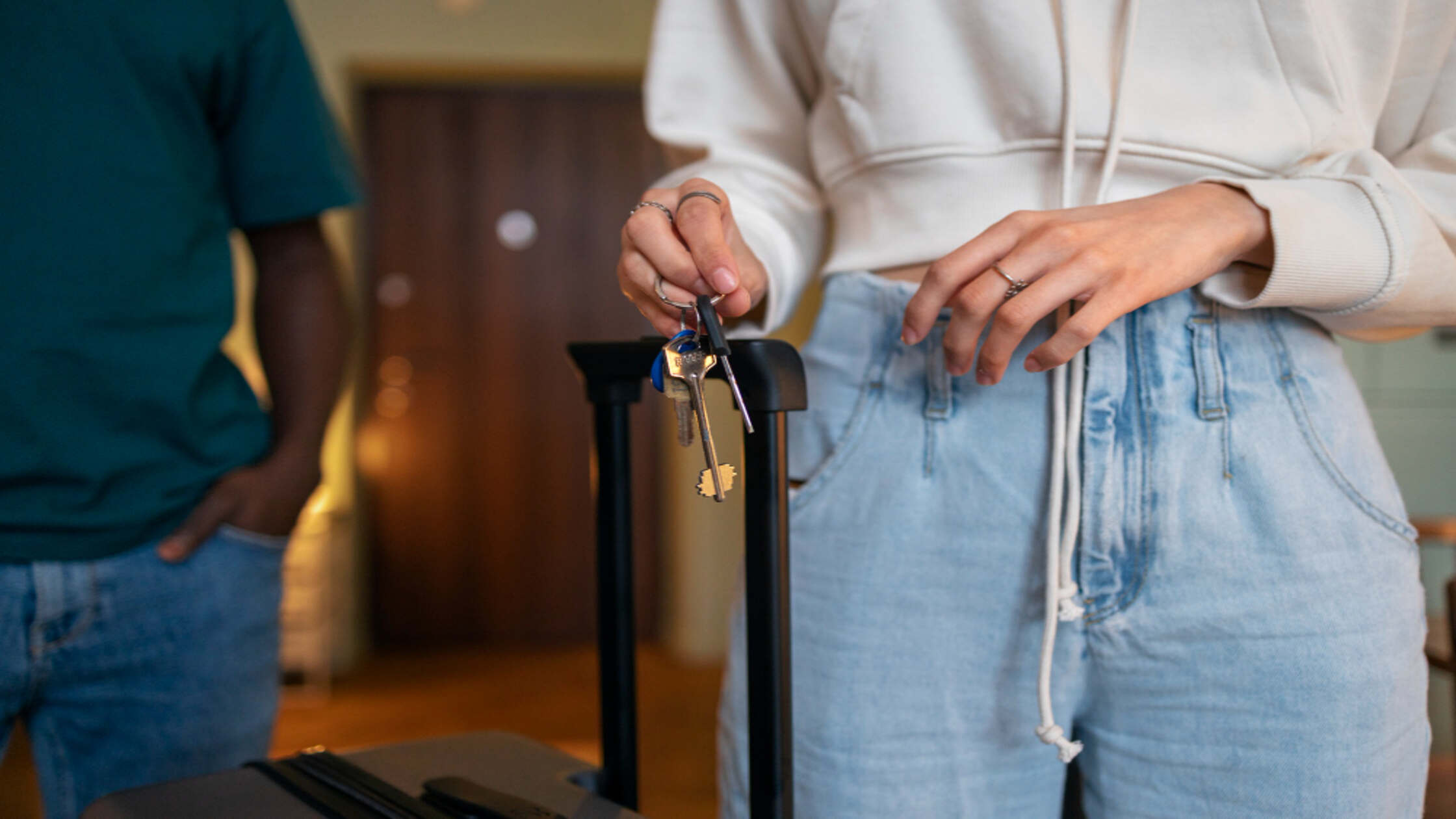Squatter rights may not be the first thing on your mind until they suddenly affect you. In Maine, adverse possession laws allow individuals to claim property under specific conditions, sometimes leading to unexpected legal battles.
If you own land, rent property, or are living in an abandoned home, you should understand how Maine squatter rights apply in 2025. This guide will explore the legal protections available, the requirements for Maine adverse possession claims, and steps you can take to safeguard your property.
What Are Squatter Rights in Maine?
Under Maine squatter rights, if a person continuously occupies a property for a long enough period under specific conditions, they may have a legal claim to ownership through a process called adverse possession.

But before you start worrying that someone can just walk into your house and take it, let’s break this down. Squatters aren’t automatically granted rights the moment they step onto a property. The law requires them to meet strict criteria over an extended period (20 years, to be exact).
That’s two decades of uninterrupted, exclusive, and public use of the property. Property owners, landlords, and even tenants should be aware of squatters' rights in Maine to protect their rights and avoid unwanted legal complications.
Squatting vs. Trespassing in Maine: Key Differences
At first glance, squatting and trespassing seem like the same thing. Both involve someone being on someone else’s property without permission. But legally? They’re worlds apart.
- Trespassing is an illegal act where someone enters or remains on private property without permission, often leading to immediate removal or criminal charges.
- Squatting, on the other hand, involves the unauthorized occupation of a vacant or abandoned property for an extended period. In some cases, squatters may even have legal protections if they meet Maine adverse possession criteria.
Table Comparison: Squatting vs. Trespassing in Maine
To make things clearer, here’s a quick breakdown of the differences.
Key takeaway: While trespassing is a clear-cut crime, squatting exists in a legal gray area - one that can, over time, result in property claims.
Understanding Maine’s Adverse Possession Law

Maine adverse possession law is designed to encourage land use and prevent properties from sitting empty indefinitely. But that doesn’t mean anyone can just claim ownership of an abandoned home on a whim.
Legal Requirements for a Squatter to Claim Ownership
For a squatter to legally gain ownership, they need to meet 5 specific conditions under Maine squatter rights:
- Continuous use: They must live on the property without interruption for two straight decades. Leaving for extended periods resets the clock.
- Exclusive possession: The property must be used solely by the squatter—no sharing with the legal owner.
- Open and notorious use: Their occupation must be obvious to anyone, including neighbors and the original owner. No sneaky, secretive squatting!
- Hostile possession: Not as aggressive as it sounds. In legal terms, this just means they’re there without the owner’s permission—even if unknowingly.
- Actual possession: The squatter must treat the property as their own—living there, making repairs, and even paying taxes.
That said, property owners can prevent Maine adverse possession claims by regularly inspecting their land, fencing off vacant properties, and taking legal action as soon as unauthorized occupation is detected.
2025 Updates on Adverse Possession Laws
As of 2025, Maine has not significantly changed its 20-year requirement for Maine adverse possession, but legal trends are shifting. Courts are increasingly requiring stronger evidence to prove continuous occupation, making it harder for squatters to claim ownership without clear documentation. Additionally, Maine lawmakers have been discussing potential changes to clarify property rights, including making it easier for owners to remove squatters through expedited legal processes, such as using a Maine writ of possession.
For property owners, the note here is to stay proactive. Regular property inspections, proper fencing, and timely legal action can help prevent squatting issues from escalating. Likewise, for those who believe they have a legal claim under Maine adverse possession, consulting a real estate attorney is more important than ever in 2025.
Is It Illegal to Move into an Abandoned House in Maine?
It’s a tempting thought, an empty, neglected house just sitting there, seemingly forgotten. Could someone just move in and claim it as their own? Not so fast.
In Maine, breaking Maine abandoned property law without permission is considered illegal trespassing. However, if someone stays long enough under certain conditions, they may be able to claim legal ownership through adverse possession, but only after 20 years of continuous, exclusive, and open occupancy.
It is important to differentiate between an abandoned home and a property with an absentee owner. Even if a home appears vacant, it remains private property unless legally transferred. Property owners maintain the right to remove unauthorized occupants, and law enforcement can intervene if trespassing is reported.
How to Evict a Squatter in Maine? A Simple Guide in 6 Steps

Removing a squatter from a property in Maine requires adherence to a legal eviction process.
6 Steps for Landlords and Homeowners
Squatting is a serious issue, but following the right procedures can help you regain control of your property.
- Confirm Squatter Status: Begin by determining if the individual is a trespasser or a squatter. Trespassers can typically be removed by law enforcement, while squatters require a more formal legal process.
- Serve an Eviction Notice: The next step is to provide the squatter with a written notice to vacate. In Maine, the notice period usually ranges from 7 to 30 days, depending on the situation.
- File an Eviction Lawsuit: If the squatter refuses to leave after the notice period, file an unlawful detainer lawsuit in court. This is the official start of the legal eviction process.
- Attend the Court Hearing: Attend the court hearing and present proof of ownership and evidence that the squatter is occupying the property without legal right. If the judge rules in your favor, you’ll receive a writ of possession.
- Enforce the Eviction Order: Once the court issues the eviction order, only a sheriff or authorized officer can physically remove the squatter. It’s important to avoid taking matters into your own hands.
- Secure the Property: After eviction, take steps to prevent future squatting by securing the property, installing locks, security systems, or fencing.
What Landlords Should NEVER Do During an Eviction
Evictions can be a challenging process for landlords, particularly in Maine, where the law offers protections against illegal removal tactics for squatters.
To avoid potential fines or lawsuits, it's crucial for property owners to adhere to proper procedures and avoid certain actions. For instance, landlords should never shut off utilities like water, electricity, or gas to force someone out, as this is illegal. Changing locks before completing a legal eviction is also considered an illegal lockout, and landlords should refrain from physically removing squatters, as only the sheriff's department is authorized to enforce an eviction order.
Lastly, harassing or threatening a squatter may not only be ineffective but could also lead to legal repercussions.
Costs and legal considerations of evicting a squatter
Evicting a squatter in Maine isn’t free, and landlords should prepare for the potential costs, including:
- Filing Fees: Court fees for an unlawful detainer lawsuit can range from $100 to $500, depending on the county.
- Attorney Fees: If the case is complicated, hiring a lawyer could cost $1,000+.
- Sheriff Enforcement: Once an eviction order is issued, landlords may have to pay a sheriff’s fee (often around $100 to $200) to remove the squatter.
- Property Repairs: Squatters often leave behind damage or trash, requiring clean-up and repairs that could cost hundreds or even thousands of dollars.
Evicting a squatter in Maine isn't just about legal procedures—it also comes with financial and maintenance obligations. Property owners are generally responsible for ensuring their properties remain in compliance with state and local housing codes, even if an unauthorized occupant is present. This includes repairs, safety measures, and potential liabilities if the property is occupied.
For landlords managing rental properties, understanding Maine maintenance responsibilities under lease agreements can help clarify what obligations persist even when dealing with squatters.
Maine Squatter Rights in Portland, Maine: What Property Owners Should Know
Squatting can happen in urban areas, such as Portland, just as easily as it can in rural settings, and property owners may find themselves facing the potential for a lengthy and complicated legal battle. Property owners should understand that squatters' rights in Portland, just like the rest of Maine, allow squatters to claim ownership after occupying a property for a significant period. However, the requirements for Maine adverse possession are clear: the squatter must occupy the property for at least 20 years in an open, notorious, and continuous manner.
While Portland is known for its vibrant real estate market, property owners should regularly monitor vacant properties to avoid squatting situations.
Homesteading Laws in Maine: Can They Apply to Squatters?
No, homesteading laws do not apply to squatters, but it's important to understand the distinction.
Homesteading laws in Maine are designed to protect property owners who live on their land as their primary residence, offering up to $50,000 in protection from certain debts. Besides, homesteading laws do not provide a "shortcut" for squatters to take ownership of property, but they underscore the importance of understanding the legal framework for property rights.
Squatters attempting to claim land without legal ownership face significant hurdles, including 20 years of continuous possession under adverse possession rules.
Conclusion
Preventing squatting begins with a proactive approach. If you’re still unsure about how to handle Maine squatter rights or if you’re dealing with one right now, continue to read the article in LeaseRunner. We offer a comprehensive guide on how to take the right steps for a hassle-free resolution!
FAQs
Q1: How long does it take to evict a squatter in Maine?
The time frame can vary depending on the circumstances. Generally, after serving an eviction notice, the process may take several weeks or even months if the squatter contests the eviction.
Q2: Can a squatter claim ownership of a property without paying property taxes?
No, one of the requirements of adverse possession in Maine is that the squatter must occupy the property in a manner that includes treating it as their own, which may involve paying taxes for the property.
For landlords, understanding Maine rent payment obligations can also help distinguish between legal tenants and unauthorized occupants, ensuring compliance with state property laws.
Q3: Can squatting occur on commercial properties in Maine?
Yes, squatting can happen on commercial properties as well as residential ones. Owners should be vigilant about checking vacant properties regularly to avoid potential squatter issues.



